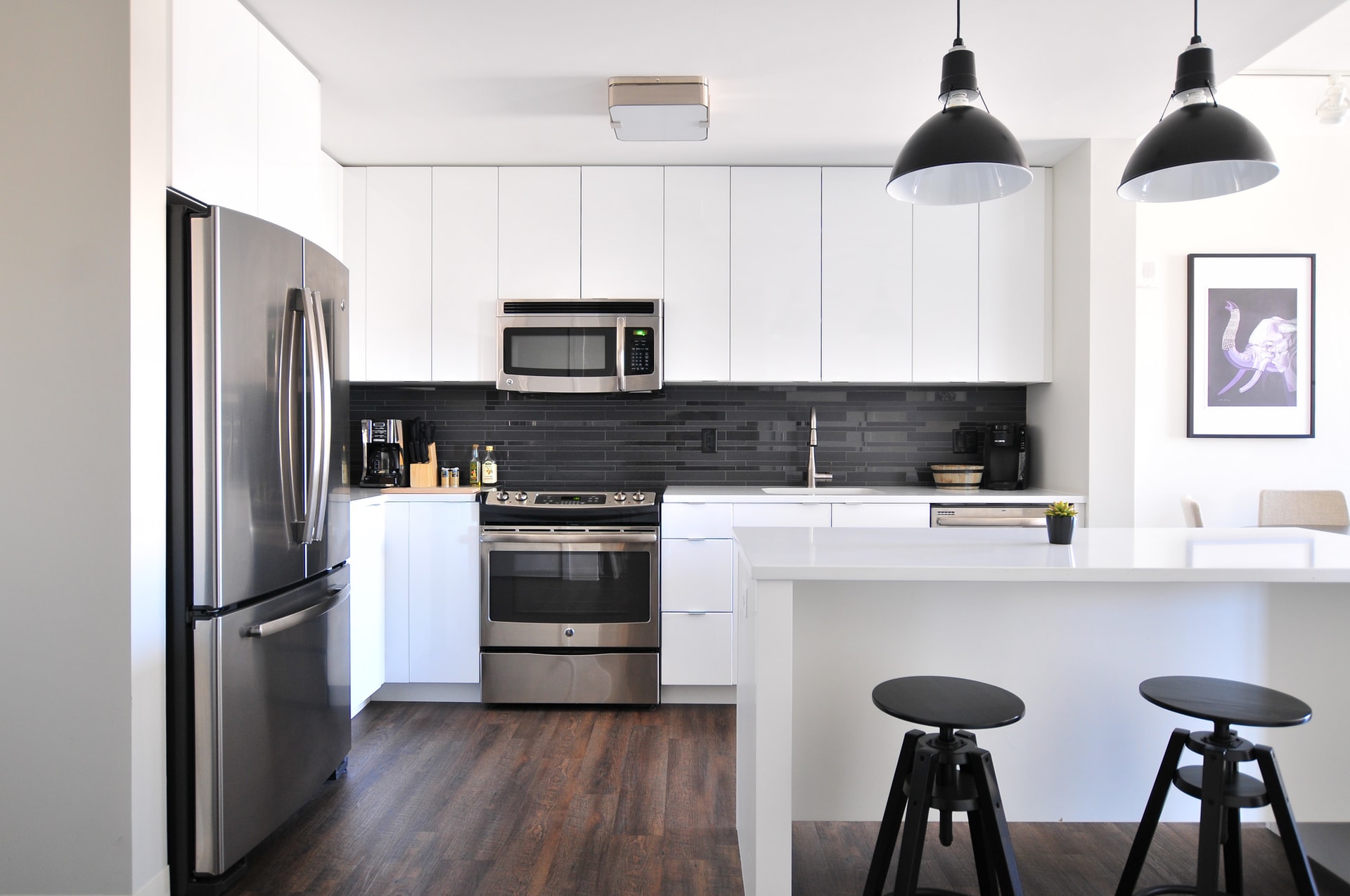Photo by Naomi Hébert on Unsplash
Our environment has a huge effect on our physical and emotional health. After all, if you wanted to get away from it all and experience calm, you wouldn’t head to a crowded city, you’d choose the countryside or a deserted beach.
As we spend so much time in our homes, it’s important to realise just how much they affect our wellbeing, and what you can do to improve it. After all, our homes should be the place we feel safe, relaxed and able to be ourselves.
With more and more people also working from home, we also have to make our homes suitable for work and productivity too.
Make the most of outside spaces
If your home has access to a garden or yard, then you should really take the time to make it as inviting as possible. There are many inspiring backyard ideas you can use as inspiration for your makeover.
Fresh air and sunlight are great for clearing the cobwebs and clearing your mind of stress and distractions.
Make the space clear and clutter-free. Plant some beautiful flowers or shrubs that you can look at. If there’s space, add some garden furniture.
Not only is getting outside good for you, but it can also keep your vitamin D levels topped up, which can help ease depression and lessen the effect of Seasonal Affective Disorder during the winter months.
Keep a flow of fresh air
The COVID pandemic has shown how important it is to air out our homes on a regular basis. Every day, germs, dust and carbon dioxide can build up, reducing the air quality. Get into the habit of opening your windows as much as possible. You’ll find it’s good for clearing your head and being healthier overall.
Remove clutter
A disorganised house, full of clutter is more than just an eyesore. It can make you feel anxious, unproductive and even affect your relationships. While it might seem like a huge task, throwing out all your unneeded items and organising everything neatly, can have an enormous impact on your life.
If it all seems overwhelming, start small and organise a certain room first, followed by another. Before you know it, you will have finished.
Try and get into the habit of doing little and often to keep your home organised, so that it doesn’t build up again.
If you’re really finding things difficult, an entire industry has sprung up around organising. You can now hire someone to come to your home and not only help clear it but work with you to design an organisational system that works for your lifestyle. It’s a great idea if you have trouble getting motivated or are having a lot of anxiety over your cluttered lifestyle. A quick Google search will bring up the professionals in your area, or you can ask for recommendations online.
Let there be light
During the day, letting in as much natural light as possible is great for keeping your mood up and your mind alert and focus. But if possible, you should also let the lighting in your home try and mirror that of the outside. Unless you need bright light to complete a task, try letting your lights get dimmer as the day goes on, which can tell your body that it’s time to relax and wind down from the evening ahead.
Remove bacteria and allergens
Our homes can be a source of germs and bacteria that can cause ill health. Dust and mites can cause breathing difficulties and skin complaints. Areas of damp and mould can have caused respiratory problems or exacerbate asthma.
If you’re particularly sensitive to mould or have an allergy, then the symptoms can be coughing, chest infections, itchy eyes and lethargy.
The best way to deal with this is to give your home a deep clean to remove all possible contaminants. Once you have a good starting point, try and keep on top of the cleaning and dusting on a regular basis.
If damp and mould continue to be a problem, you might need to get some work done in your home to repair the damp course or improve ventilation.
Design your home to be relaxing
You want your home to be a place that you can relax and feel safe in. When decorating and choosing furniture, take into account how you want to spend your time there, rather than how you feel it should look to other people. If you like to have people over to visit or socialise, then make your home somewhere you can do that. Or if you love reading, create a comfortable reading space with a chair and bookcases.
Bring nature indoors
Even just a few minutes of being in natural surroundings can really impact health in a positive way. Even if you can’t get outside as often as you’d like, there are ways to bring natural elements indoors. Try using plants. Flowers, water features and aquariums to reduce stress and boost productivity within your home.
Personalise you surroundings
Your home should be a reflection of you and the things you love. Use photos, treasured items and things you find beautiful and display them throughout the house. They can make you feel happy when you see them and contribute to your overall sense of well-being.
Keep work separate
When you work from home, it’s easy to let your work and home life merge. While this is sometimes good if you’re got personal issues to deal with, more often than not, it leads to working extra hours and not being able to switch off, which isn’t good for a work-life balance.
Final thoughts
While we can’t control every environment we’re in, we do have a level of control over our own homes, which is why it’s important that we recognise the huge impact they have on our lives overall. Knowing how and why they affect our health is the key to making them much healthier and happier places for you and your family.
Keep up with Project Fairytale








